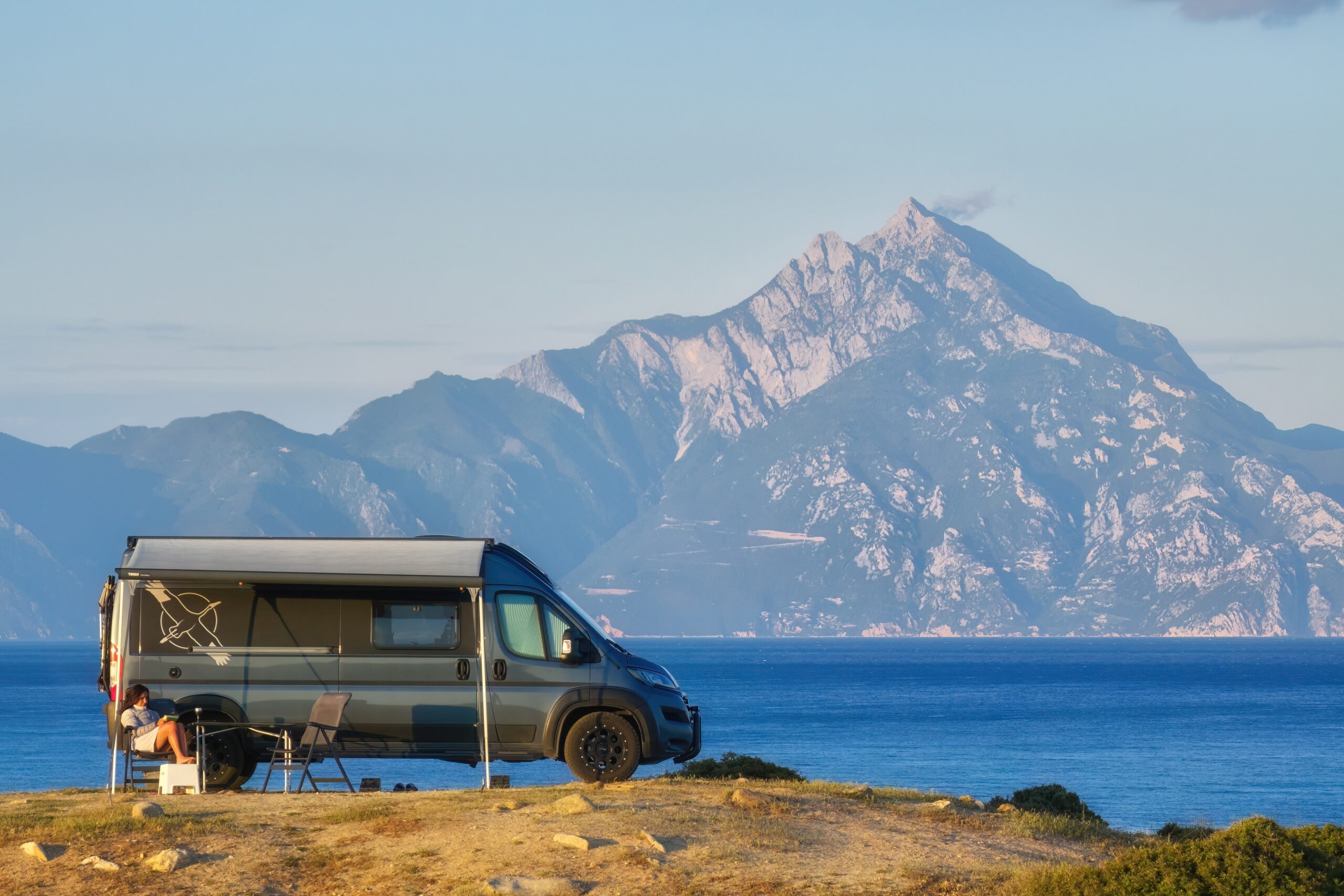There are as many ways to love RVing as there are different types of rigs on the road. From the simplest DIY van conversion to the most luxurious designer RV and everything in between. One
increasingly popular way to travel is in a van. And many folks have taken the idea beyond a simple vacation into a way of life, traveling and living in a van comfortably for weeks, months, or significantly longer. What’s it like for people who are living the van life? And is it the right choice for you?
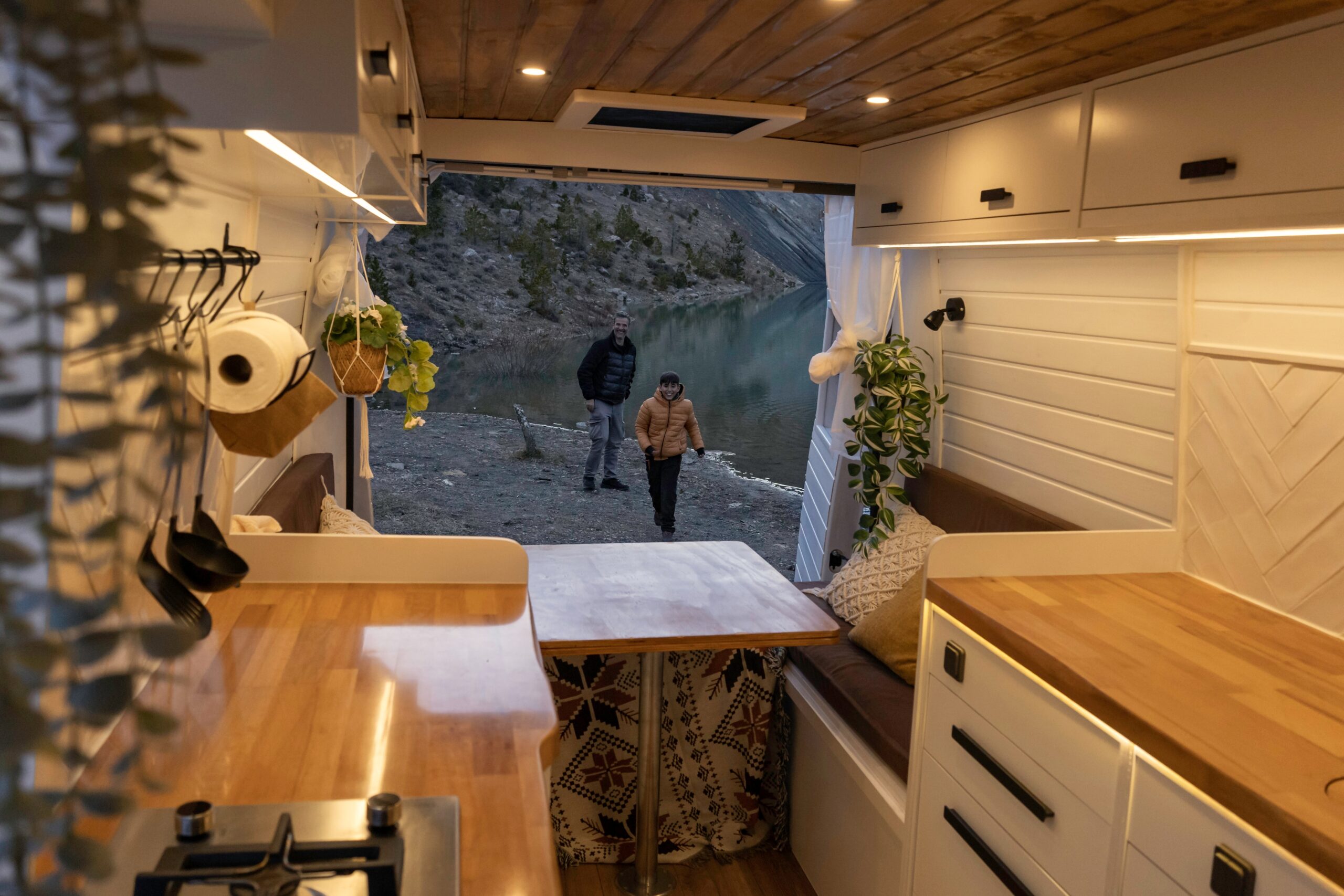
What Is Van Life?
It may seem pretty obvious— van life refers to a lifestyle centered around living in a van that’s been converted into a home. The lifestyle has gained popularity among people who are looking for more freedom, flexibility, and adventure. To live in a van, it’s vital to embrace a more minimalist lifestyle with nominal possessions. Especially for those who live in their van full-time for months or years, you’ll be required to pare down your belongings and thoughtfully choose how you’ll use your limited space.
This is something many van lifers long for as they value experiences over possessions and are looking for a unique way to explore and live without the burden possessions can sometimes place on us. There are vans that have been designed by manufacturers to have enough room for a bed, a simple kitchen setup, and even a privy, including the Ford Transit, Mercedes Sprinter, Dodge ProMaster, and many other cargo vans. Often, however, people start with a van or similar type of vehicle (e.g., a retired school bus, ambulance, or box truck) and convert it to live in. The interior is customized to maximize space and provide comfort. If you’ll be living in a van for any length of time, you’ll need power. For electricity, solar panels are often installed on the roof and combined with batteries to store energy.
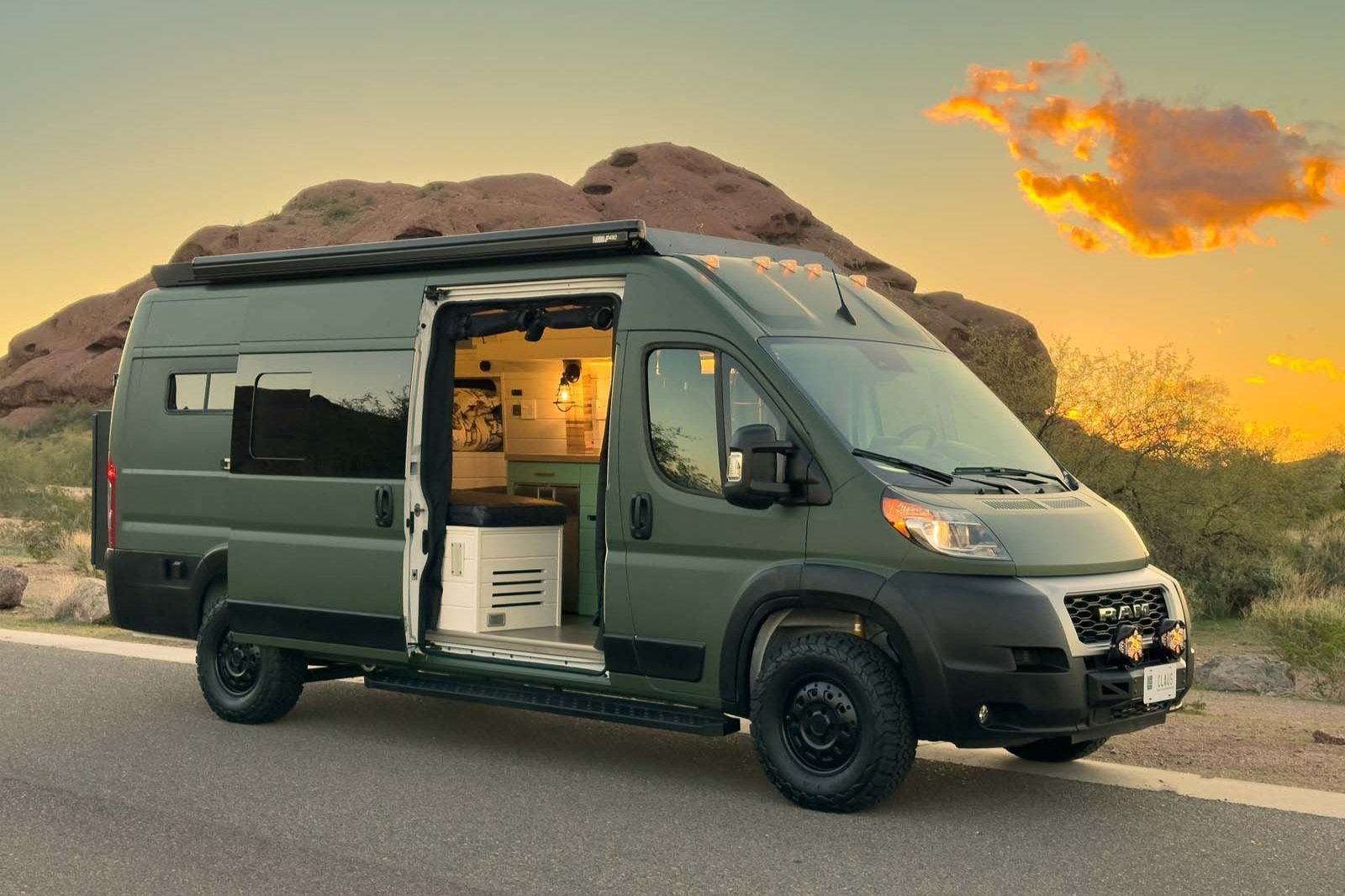
With such a setup, you can power lights, charging ports, and even small appliances. Some vans even have a small bathroom with a water setup for fresh and grey water and perhaps a small composting toilet. No matter where you live, you’ve got to have a place to eat. So, your van might include a small stove, compact refrigerator or cooler, and sink and meal prep area. Many van lifers have gotten amazingly creative to make the most of every inch to store food, clothing, gear, and other necessities. For people who need to stay connected to work or to maintain social contacts (i.e., nearly all of us), you’ll also want to consider connectivity.
This may include a mobile hotspot, satellite internet, or portable devices as well as using public Wi-Fi from cafes, libraries, and campgrounds. One of the biggest reasons for choosing the van life is to travel and explore. You’ll find people from all walks of life—from retirees who have said goodbye to the 9 to 5 to younger folks who are just out of school and trying to decide what’s next to remote or freelance workers who are taking advantage of the freedom their jobs provide to folks who enjoy seasonal employment and can live onsite for a few months and then easily move on. Vans offer the freedom to be on the move. While van life can be lonely, there is a vibrant community that connects via social media, meetups, and events across the country. Within the VanLife movement, you’ll find plenty of support, advice, and camaraderie, no matter what stage of life you’re in.

Living in a Van: Is Van Life Right for You?
Determining if van life is right for you involves careful consideration and self-reflection. Some of the important questions to ask yourself if you’re considering living in a van include:
Why do I want to live in a van?
Are you looking for a temporary adventure to see the country? Or are you embracing a long-term lifestyle change? What do you want to get out of this experience? How will van life fit into your broader life plans?
How well do I handle change and uncertainty?
Living in a van often means you’ll have to adapt to new environments on the regular. Do you thrive on change? Or do you prefer stability and a comfortable routine?
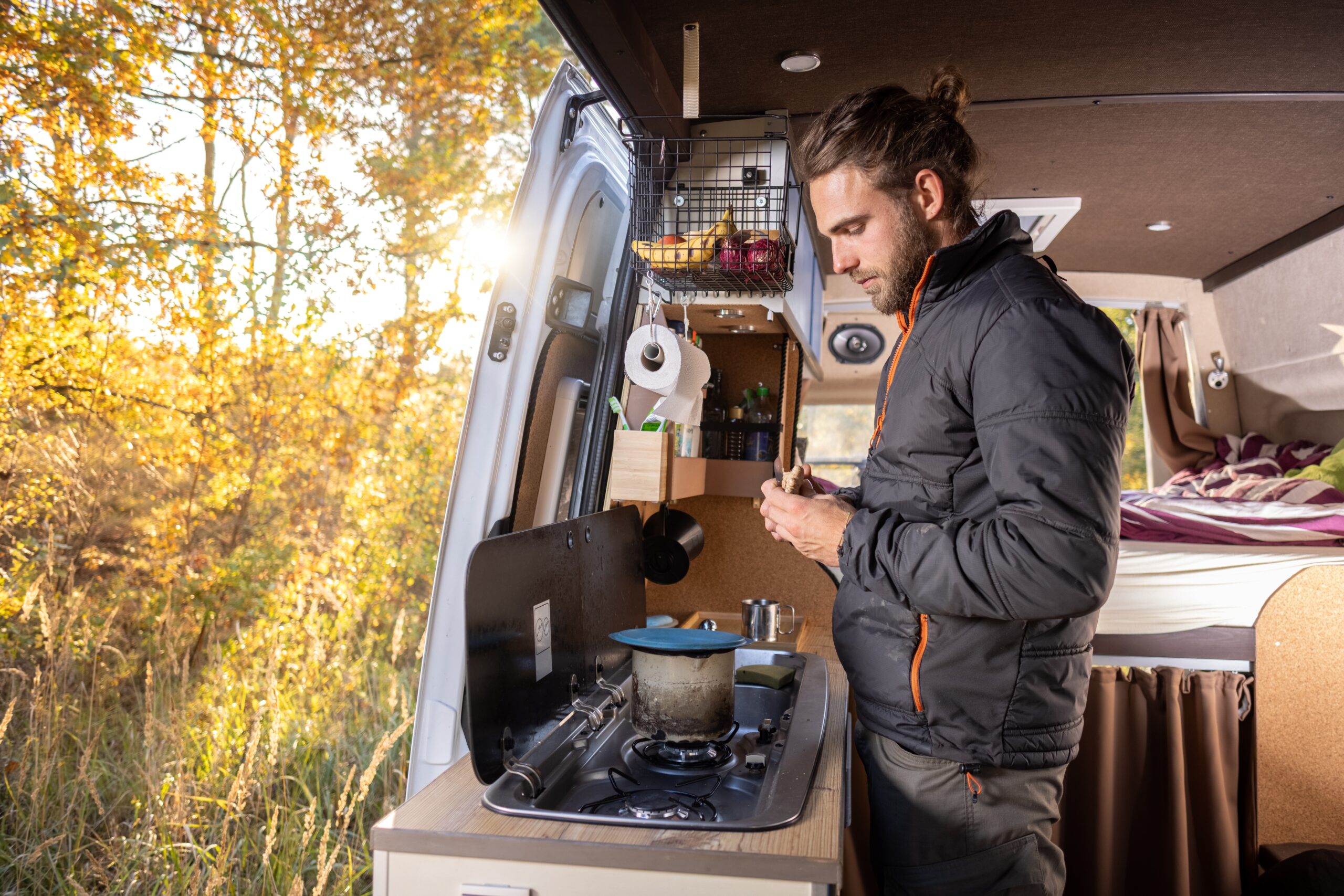
What are my needs when it comes to space and comfort?
Are you able to live in a small space with very few possessions? Do you feel comfortable with minimal privacy and away from common comforts? Are you prepared for weather changes?
Van life can be amazing when temperatures are mild, but in a heatwave or when the thermometer drops steeply, it can take ingenuity to maintain a comfortable temperature inside the van.
How important are amenities like showers, roomy kitchens, and toilets?
Are you okay going without certain conveniences for extended periods or using public amenities like showers, laundry facilities, etc. (For example, some van lifers join a gym with locations across the country not only to work out but to have access to their facilities.) Hygiene is one of the common complaints for people who have lived long-term in a van as the space limitations and water weight can make it tricky.
What is my plan for earning income?
Are you able to live on savings and/or social security, or will you need to sustain yourself financially on the road? Do your skills allow you to work remotely or with freelance jobs? Or will you travel to find seasonal work?
How comfortable are you driving and maintaining a vehicle?
Are you able to drive for long hours? Do you have the confidence to maneuver a larger vehicle? Do you have the skills to maintain your van on the road (or are you willing to learn)? Do you have
money saved for inevitable repairs that could leave you stranded?
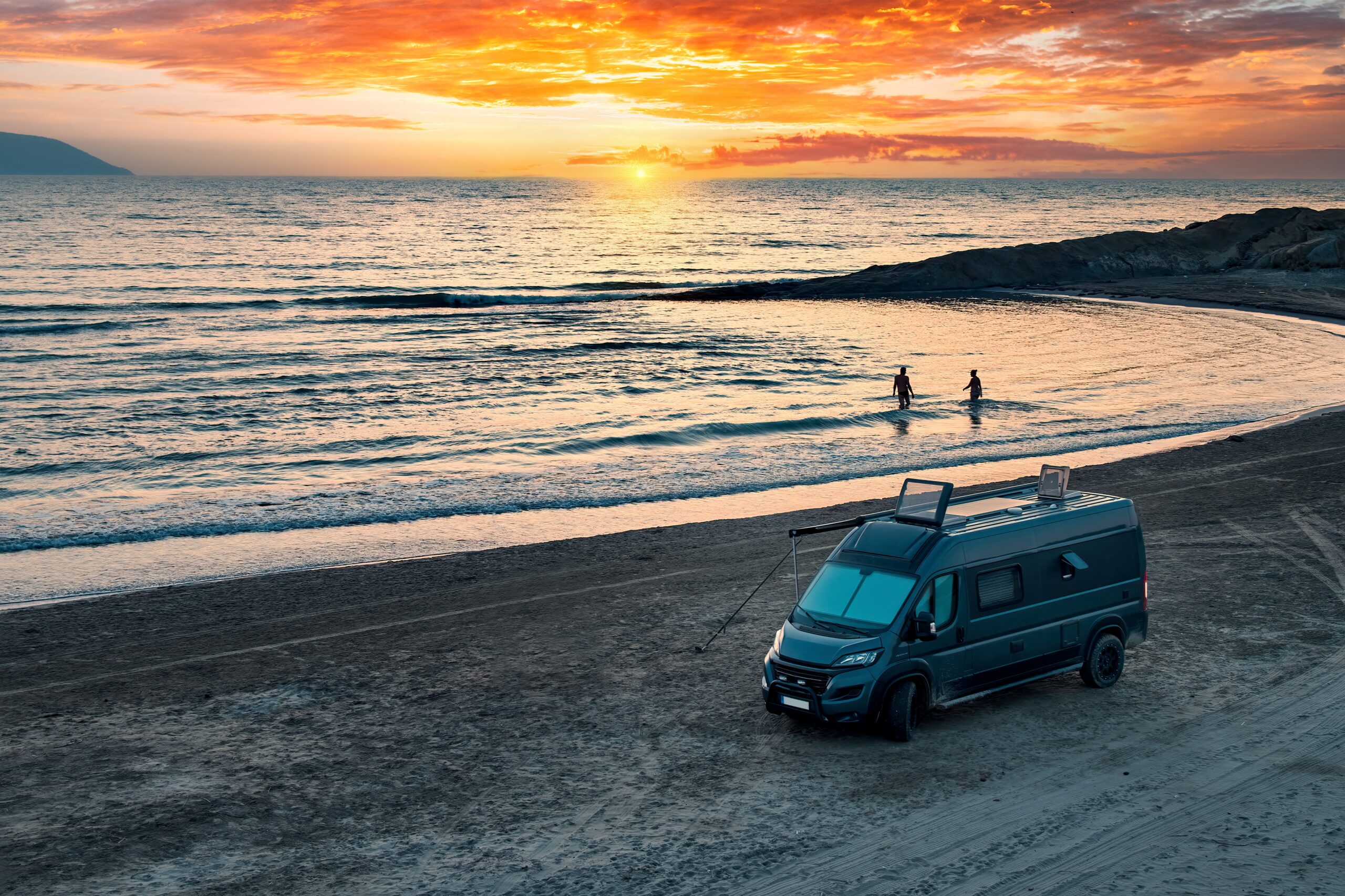
What are your social preferences?
Are you comfortable spending long periods of time alone or with your partner or friend who’s sharing the experience? Can you maintain long-distance relationships with family and friends back “home”? Are you able to make new friends—or at least strike up a conversation—with people as you travel?
How well do you deal with stress?
With van life comes unexpected situations. To thrive in this lifestyle, you’ll need to be resourceful and remain calm under pressure to solve new, often surprising challenges.
Am I legally prepared?
There are different legalities of living in a van vs. a home or an apartment. You’ll need health and vehicle insurance that travels across states. You’ll need to understand parking laws and residency requirements and be prepared to find places to park overnight that are both safe and legal. Some communities may not be as inviting as others. And theft, vandalism, and personal safety are significant considerations.
Have I prepared a budget?
One of the reasons to live in a van is to cut down on expenses. And it can be significantly less costly than “traditional” living. No matter how you live, however, there are budget constraints. You’ll need to budget for fuel, food, vehicle repairs, maintenance, and parking fees. So, budgeting effectively is a crucial skill to keep you on the road and loving your adventure. Taking time to consider these questions and speaking with people who have more experience living on the road can help you clarify whether van life aligns with your goals, personality, lifestyle needs, and skill levels. Online forums, blogs, and social media communities can provide invaluable insights and advice.
Some of the answers may lead to points of discomfort that indicate you should slow your roll and consider other lifestyle options. If, on the other hand, you are filled with excitement, even with the challenges van life presents, it could be a rewarding, fulfilling choice. And if you aren’t sure (or even if you think you are), it’s always a good idea to rent a van and take a few practice runs before you fully commit to living the van life.
